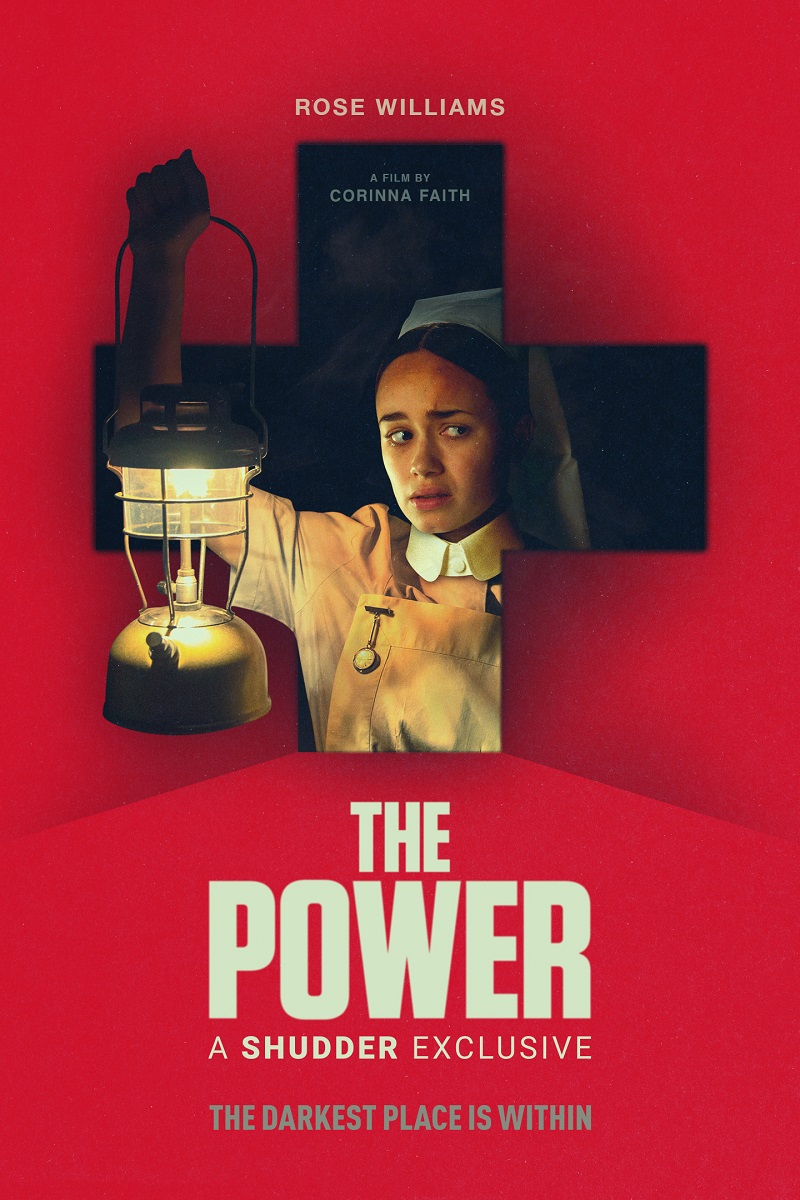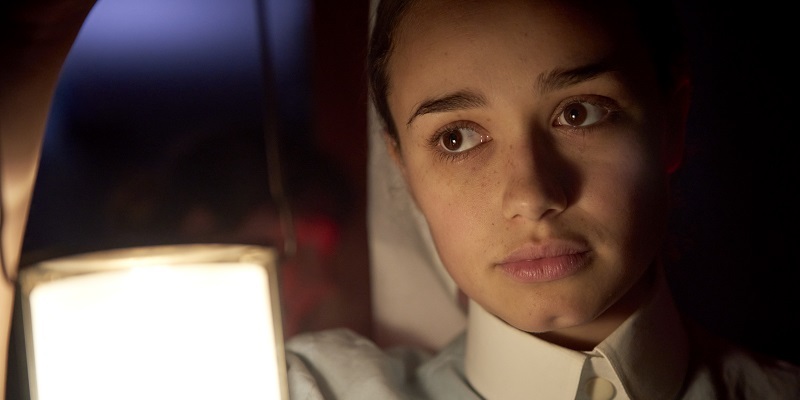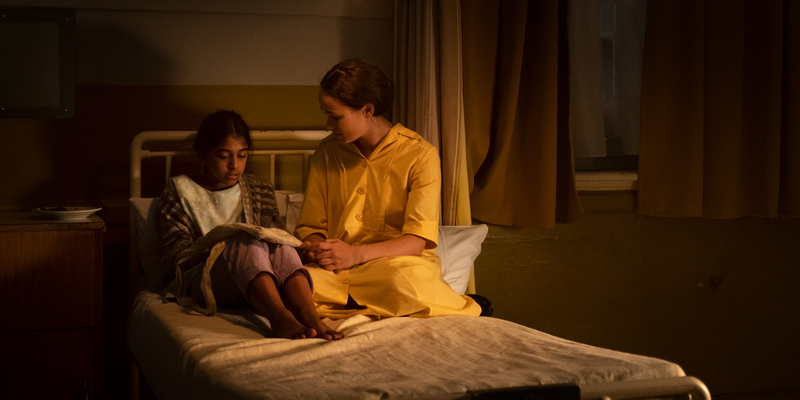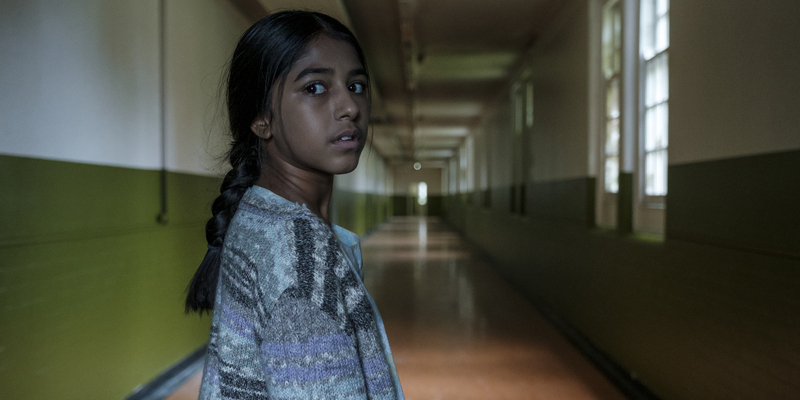
A novice hospital nurse is forced to confront her past while working a
night shift during a blackout.
Review by
Eric Hillis
Directed by: Corinna Faith
Starring: Rose Williams, Emma Rigby, Diveen Henry, Charlie
Carrick, Shakira Rahman, Gbemisola Ikumelo

To say Britain was a mess in the 1970s is an understatement. Labelled
"The Sick Man of Europe", the UK economy was ravaged by inflation which
lead to regular trade union strikes. With fuel production halted by
striking miners, Britain was forced to adopt a three day week and
electrical blackouts were enforced at night to save energy.
Writer/director Corinna Faith's feature debut
The Power takes place in the blackness of the corridors of
an East London hospital on one such night in 1974. It's such a great
setting for a horror movie that it's amazing that it hasn't already been
employed, but Faith is so focussed on getting the film's message about
abuses of power across that she never fully exploits the potential of
its setting.

Rose Williams is Val, a local EastEnder working her first shift
at a rundown hospital. After getting on the wrong side of the grumpy
matron (Diveen Henry), she is forced to work the night shift.
With all the patients relocated save for a few newborn infants and those
too sick to move, Val is left alone with a skeleton crew of nurses,
including her old school bully Babs (Emma Rigby) and a creepy
janitor, who do their best to make her debut shift a testing
experience.
As if the harassment of her coworkers wasn't enough, Val is absolutely
petrified of the darkness, seemingly due to a traumatic experience
during her childhood years spent in a notorious orphanage. When the
lights go out, Val begins seeing visions of a male face in the shadows
and is physically assaulted by an unseen force. When she tells the other
nurses about her attacks they refuse to believe her, referencing some
past incident where Val "made up" a story about her headmaster. Val's
sole ally comes in the form of Saba (Shakira Rahman), a young
Indian girl who also seems aware of the hospital's supernatural
presence.

With their endless corridors, hospitals have always made for effective
horror movie settings, the best of the lot being 1981's
Halloween 2, in which Michael Myers stalked the wards of Haddonfield Memorial
Hospital in search of Laurie Strode. The Power initially
uses its eerie location well, with one particularly effective sequence
in which Val watches in horror as the lights go out one by one, earlier
than she expected. But then Val retreats to the hospital's one well lit
ward for the remainder of the film, and so the setup is allowed to go
unexplored.
The title of Faith's debut refers not only to the blackouts, but to the
institutional abuses of power that dogged '70s Britain, but which were
only recently made public with the shaming of celebrity icon Jimmy
Saville, who used the very setting of a hospital to carry out his abuse
of scores of children. Some might say that the horror genre deals in so
much nastiness that nothing is taboo, but I've always drawn a line when
it comes to child abuse. Maybe I'm a prude, but I just don’t think it's
a subject that can be tackled in a genre primarily aimed at
entertainment. Grounded in so much real life horror,
The Power leaves a bitter taste in the mouth that makes it
difficult to engage with. I had a similar issue with the 2010 remake of
A Nightmare on Elm Street, which pushed its abuse angle to the fore and came off in poor
taste.

I can however see what Faith is trying to do here, but I can't help
feel it would have been more effective to use the allegorical potential
of the horror genre to address institutional abuse. Taken on its own
terms, The Power certainly gets its message across, and as
its tortured, vulnerable heroine, Williams embodies a victim finding the
strength to expose her tormentors. It's a shame
The Power couldn't explore its theme in a more nuanced,
genre-savvy fashion.


